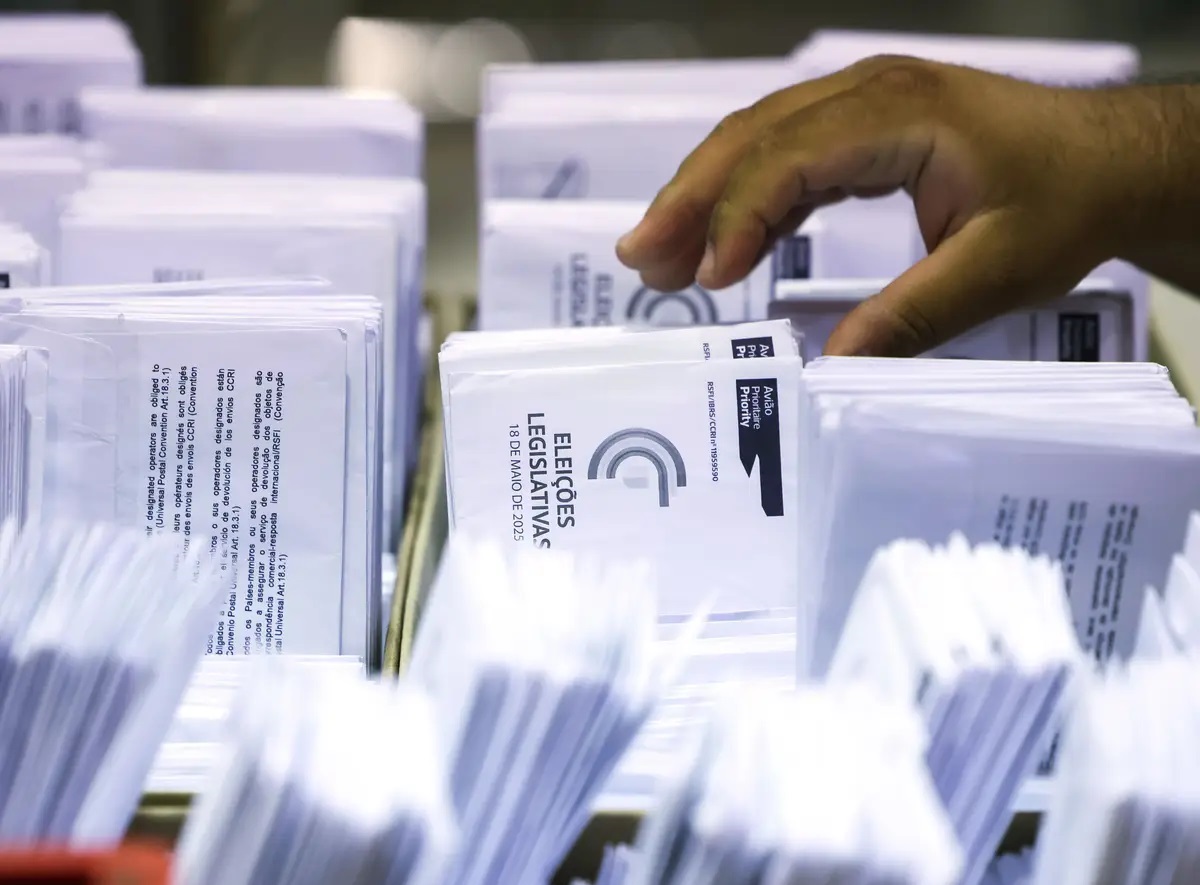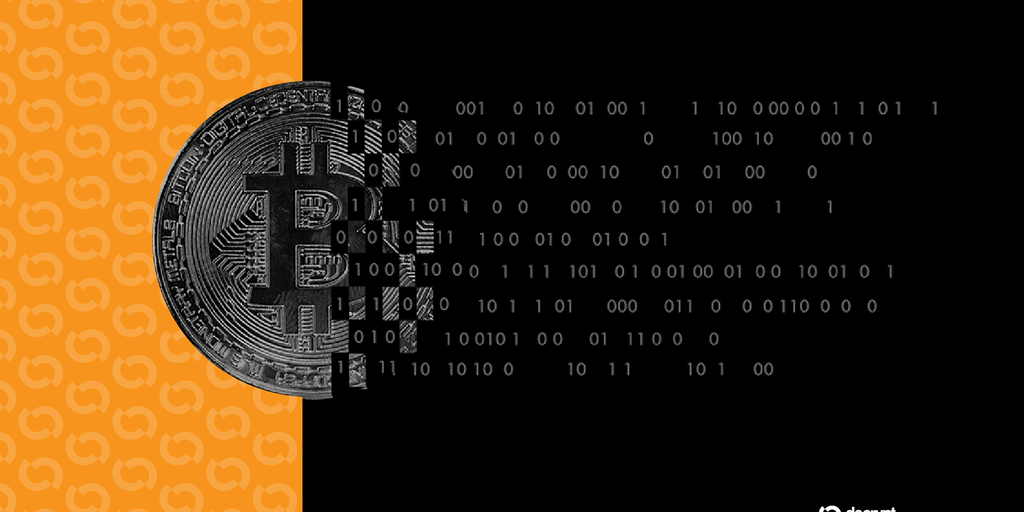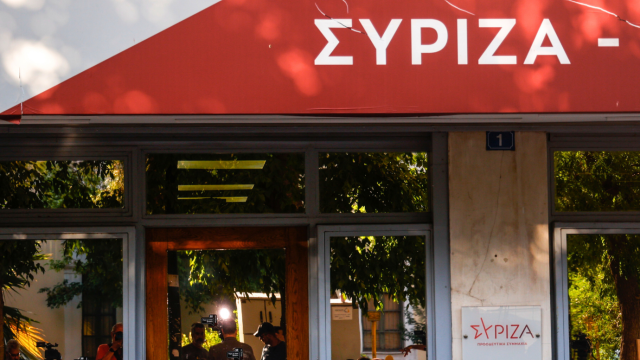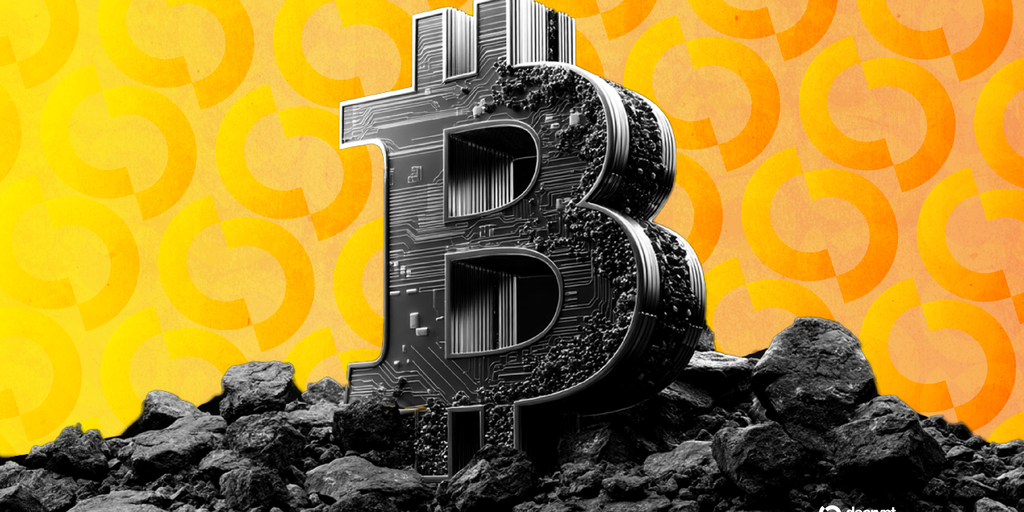It Might Actually Be 20 Times Easier for Quantum Computers to Break Bitcoin, Google Says
Google just dropped a new research paper, and Bitcoin maxis may want to do some quick math. The tech giant's quantum team found that breaking the RSA encryption protecting everything from your bank account to your Bitcoin wallet might need 20 times fewer quantum resources than previously estimated.
“Planning the transition to quantum-safe cryptosystems requires understanding the cost of quantum attacks on vulnerable cryptosystems,” Google Quantum Researcher Craig Gidney wrote. “In Gidney+Ekerå 2019, I co-published an estimate stating that 2048 bit RSA integers could be factored in eight hours by a quantum computer with 20 million noisy qubits. In this paper, I substantially reduce the number of qubits required.”
“I estimate that a 2048 bit RSA integer could be factored in less than a week by a quantum computer with less than a million noisy qubits,” Gidney argued.
"This is a 20-fold decrease in the number of qubits from our previous estimate," the Google researcher said in an official blog post.
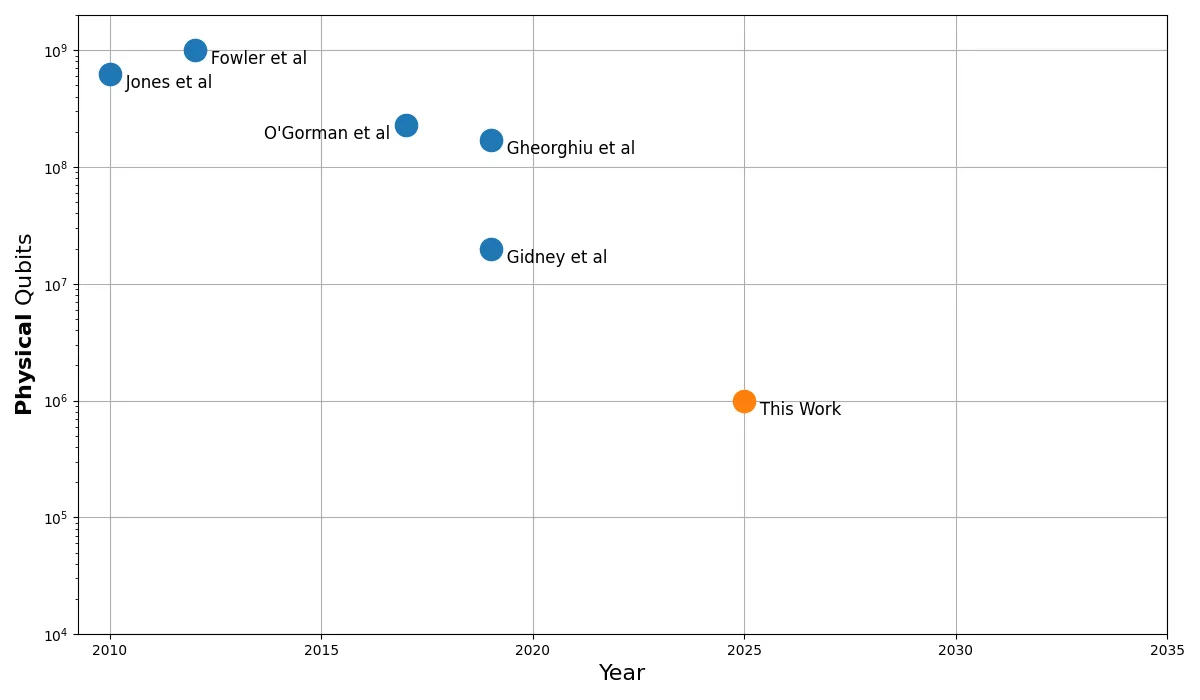
But it’s not like it’s going to happen anytime soon. For context, IBM's Condor (the most powerful quantum computer to date) tops out at 1,121 qubits while Google's own Sycamore runs on 53. So your coins are still safe—for now. The trajectory is what matters, and it's pointing in a direction that should make anyone holding crypto sit up and pay attention.
The breakthrough, Google says, comes from two places: “better algorithms and smarter error correction.” On the algorithm side, researchers figured out how to make calculations for modular exponentiations—the heavy mathematical lifting in encryption—twice as fast, whereas the error correction improvements is possible because the team tripled density of the logical qubits space by adding a new layer of error correction, effectively packaging more useful quantum operations into the same physical space.
They also deployed something called "magic state cultivation"—basically a trick to make special quantum ingredients (called T states) stronger and more reliable, so quantum computers can perform complex tasks more efficiently without wasting extra resources—to reduce the workspace needed for basic quantum operations.

Why should Bitcoin holders care about Quantum computers?
Bitcoin relies on elliptic curve cryptography, which works on similar mathematical principles to RSA. If quantum computers can crack RSA faster than expected, Bitcoin's security timeline just got compressed. The cryptocurrency's 256-bit encryption is stronger than the older RSA keys Google studied, but not by as much as you might hope when dealing with exponential scaling.
And there are already experts trying to find ways to apply quantum tech to break Bitcoin.
As previously reported by Decrypt, Project 11, a quantum computing research group, launched a Bitcoin bounty worth nearly $85,000 for anyone who can break even a simplified version of Bitcoin's encryption using a quantum computer. They're testing keys ranging from 1 to 25 bits—tiny compared to Bitcoin's 256-bit encryption, but it's about tracking progress.
"Bitcoin's security relies on elliptic curve cryptography. Quantum computers running Shor's algorithm will eventually break it," Project 11 wrote when announcing their challenge. "We're testing how urgent the threat is."
Bitcoin’s security relies on elliptic curve cryptography.
Quantum computers running Shor’s algorithm will eventually break it.We’re testing how urgent the threat is.
— Project 11 (@qdayclock) April 16, 2025
The security implications extend beyond crypto. RSA and similar systems underpin global secure communications, from banking to digital signatures. Google noted that adversaries could already be collecting encrypted data now to decrypt later once quantum computers become available, so they are preparing for this imminent future.
"Google has therefore been encrypting traffic both in Chrome and internally, switching to the standardized version of ML-KEM once it became available," Google said.
The National Institute of Standards and Technology released post-quantum cryptography standards last year and recommended phasing out vulnerable systems after 2030. Google's research suggests that timeline might need acceleration.
IBM has plans for a 100,000-qubit quantum computer by 2033, partnering with the University of Tokyo and University of Chicago. Quantinuum aims to deliver a fully fault-tolerant quantum computer by 2029. These targets suddenly look more significant given Google's findings.
Another thing to tackle is how much continuous runtime quantum machines support. The hypothetical million-qubit machine Google describes would need to run continuously for days, maintain extremely low error rates, and coordinate billions of operations without interruption. Current quantum computers can barely maintain coherence for minutes—so again, don’t panic.
The quantum threat isn't immediate, but it's accelerating faster than expected. The crypto community has already started working on quantum-resistant solutions. Solana developers introduced a quantum-resistant vault using hash-based signatures, while Ethereum co-founder Vitalik Buterin proposed forking the code of current blockchains to protect against quantum threats.
So it seems more likely that we’ll see some sort of anti-quantum hard fork in the future before we witness the first quantum hack of the Bitcoin blockchain—fingers crossed.
Content Original Link:
" target="_blank">











